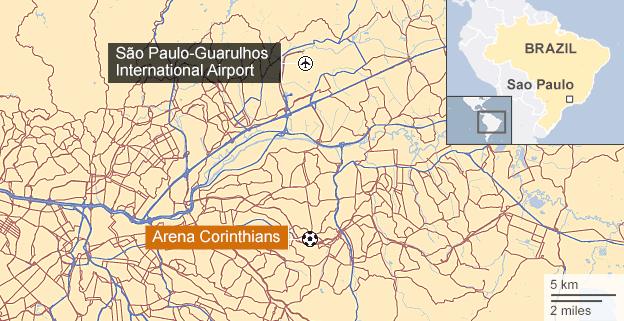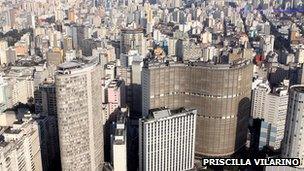World Cup Brazil city guide: Sao Paulo
- Published
BBC Brazil's Camilla Costa offers an insider's view of the 12 cities hosting matches in this year's Fifa World Cup tournament.
Sao Paulo
Overview


Sao Paulo is the biggest city in South America
Sao Paulo,, external Brazil's largest and most populous city, is by far its most diverse, with as many as 100 different ethnic groups.
Among them is the largest number of Japanese descendants outside of Japan.
Full of superlatives, the city is home to some the country's biggest companies and to its main cultural and gastronomic scene.
However, it also has some of the most appalling crime statistics in the country.
Venue

Arena De Sao Paulo. Capacity: 68,000.
Also known as Itaquerao, Arena De Sao Paulo, external was built as a home to the Corinthians, one of Brazil's most popular clubs.
Its cover was designed to double the noise level of supporters inside the stadium, so expect it to be loud and take your own earplugs.
During the stadium's construction, three workers died in accidents amid a series of delays to completion.
Culture and cuisine

The literal translation of coxinha is 'little thigh' as it resembles a chicken drumstick
Sao Paulo's residents - or Paulistanos - often claim to make the best pizza in the world, as well as the best Japanese food.
But one thing they are famous for is coxinha, a deep-fried battered chicken snack.
Faithful to its history as a coffee producer, Sao Paulo is still the best place to buy first-class blends. The high-quality coffee products are sold at expensive, specialised shops only.
- Attribution
- Published12 November 2018